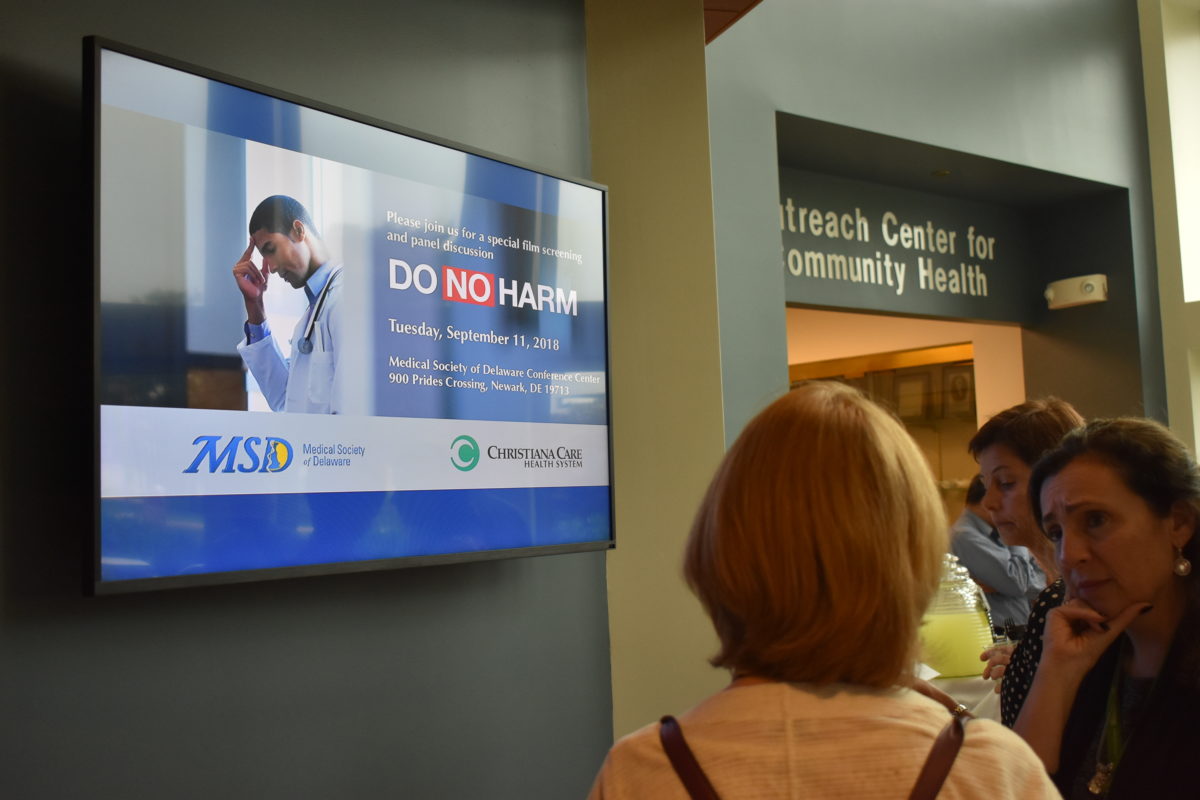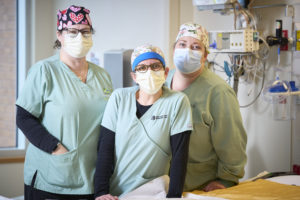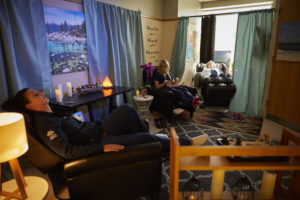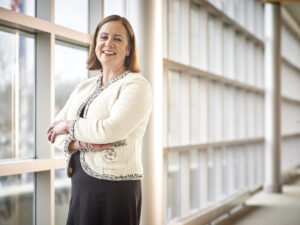Documentary filmmaker Robyn Symon’s film “Do No Harm” takes a hard look at the growing problem of physician burnout — job stress and fatigue in the medical community that can lead to mental and physical exhaustion, and in some cases even suicide. The film highlights painful truths and poses difficult questions, especially to medical schools and health systems that, according to some in the film, are contributing to the problem.

Heather Farley, M.D., FACEP, MHCDS, who directs Christiana Care Health System’s Center for Provider Wellbeing, saw the film’s creation as an opportunity to send a message to providers that their well-being is important, and to give them permission to acknowledge when they need help.
Christiana Care, credited as an associate producer, was the only health care system to support the film.
“It really takes a brave organization to actually want to share this,” Symon said.
She said that Christiana Care is one of the few institutions in the United States that is ahead of the curve in reckoning with the epidemic of physician burnout. Christiana Care’s Center for Provider Wellbeing was founded in 2016, and it helps providers find joy and meaning in their work by mitigating causes of stress and burnout.
At a Sept. 11 film screening and panel discussion at the Medical Society of Delaware, mental health professionals were available to help the 100 physician attendees process feelings raised by the subject matter’s raw emotional resonance.
“Do No Harm” follows three perspectives of the burnout epidemic:
- Pamela Wible, M.D., an activist and family physician seeking to draw attention to the crisis.
- Hawkins Mecham, D.O., a young doctor who attempts to take his own life.
- Michele and John Dietl, a couple whose son died by suicide shortly before his medical school graduation.
Their stories interweave as they search for answers and offer each other support. The relationship between Dr. Mecham and the Dietls provides some of the most poignant moments in the film, as when the couple attends Dr. Mecham’s graduation ceremony.
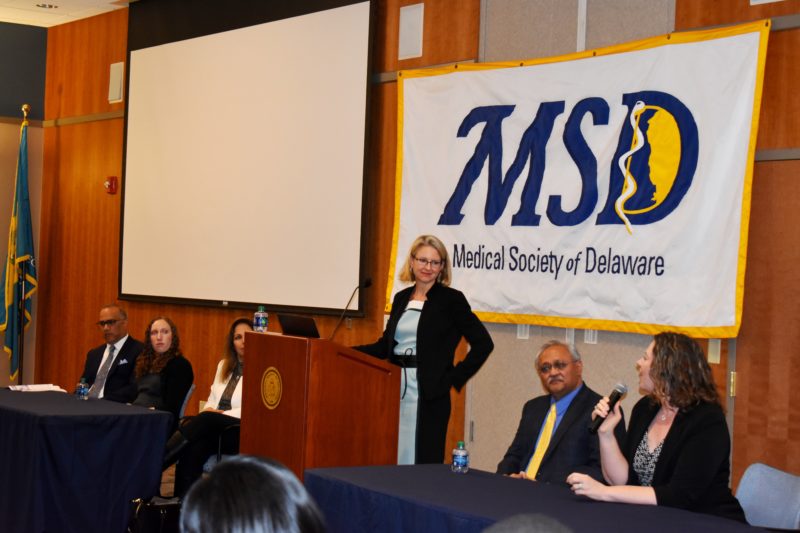
Though it includes statistics to lend perspective to the crisis, the film is an emotional – not an academic – reaction, said Symon. She was attracted to the topic in 2014, after she read a story about two doctors who took their own lives just days apart.
Because doctors living in crisis have trouble properly caring for others, the issue should be important to everyone, she said.
The film suggests a variety of culprits behind physician burnout, including profit-minded employers and tradition-bound medical schools, but it blames a culture of perfection among physicians and a stigma around mental illness as key causes. Real-world consequences such as a lack of career advancement and licensure problems can face those who admit they need help.
Vanessa Downing, Ph.D., a former cardiovascular psychologist who is now the director of content development and training at Christiana Care’s Center for Provider Wellbeing, said health care providers tend to be high-achieving people for whom it is difficult to show vulnerability. Part of her goal, then, is to make it easy to reach out. The Center for Provider Wellbeing has created a 24-hour phone line to connect providers with supportive resources. In its first year, it received 90 callers, including 13 percent of the health system’s population of residents.
But their ultimate goal is to prevent these crises by helping providers build relationships with people who can help them cope with adversity. It’s important, Dr. Downing said, to give providers time during work to talk about their experiences rather than expecting them to do it on their own time.
Making these conversations a normal part of work can break down some of the stigma associated with asking for help, she said.
After the film, Dr. Farley moderated a five-person panel to discuss the issues it raised. In addition to Downing, panelists were:
● Neil Jasani, M.D., MBA, FACEP, Christiana Care’s chief people officer.
● Prayus Tailor, M.D., nephrologist and immediate past president of the Medical Society of Delaware.
● Heather Brown, M.D., resident in Internal Medicine-Pediatrics, resident wellness officer and chair of the Resident Wellbeing Committee.
● Robyn Symon, the film’s creator.
Dr. Jasani said that he was most moved by the film’s assertion that physician suicides represent the tip of the iceberg, with many others suffering out of sight. How well these unseen problems are recognized will help determine how they affect our caregivers and our patients, he said.
Dr. Downing said the burden of disclosure rests with the listener as much as the speaker.
“Until we make it OK for physicians to be a little bit not OK, it will be hard to get them to open up,” she said.
Recognizing symptoms in one’s own colleagues can be difficult, in part because of cultural and professional norms, Dr. Tailor said. Even when physicians notice a problem, their response can be constrained by the business-driven nature of modern medicine, he said.
Dr. Brown agreed, adding that, while conversations like these are a good start, there’s still a lack of cultural permission in health care to reveal one’s struggles.
As an emergency department doctor for 16 years, Dr. Farley has seen how showing empathy to patients means sharing a piece of their trauma. It’s natural for this pain, along with the other frustrations of modern medicine, to take a toll.
Because these struggles are predictable, forward-thinking health systems must create an environment that supports providers and promotes well-being and professional fulfillment, she said.
“We still have a long way to go, but we are finally starting to have the sorts of conversations that lead to real improvement in the health and well-being of our providers,” she said.
